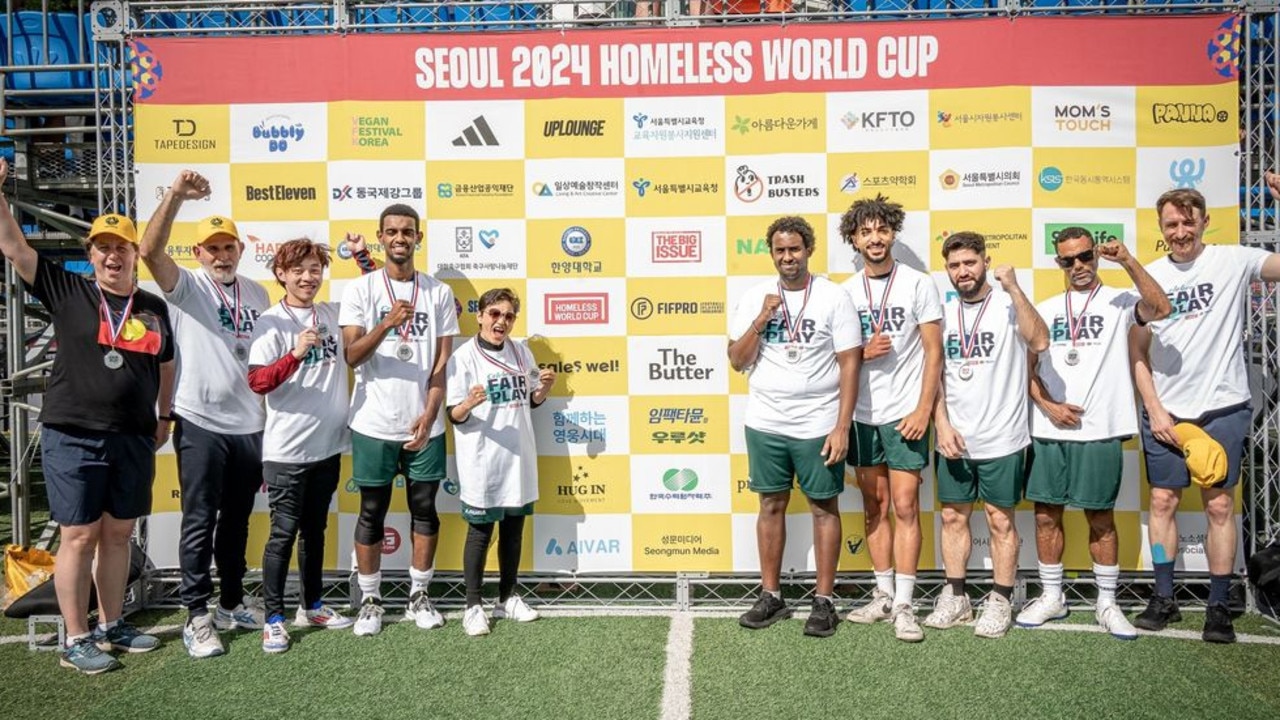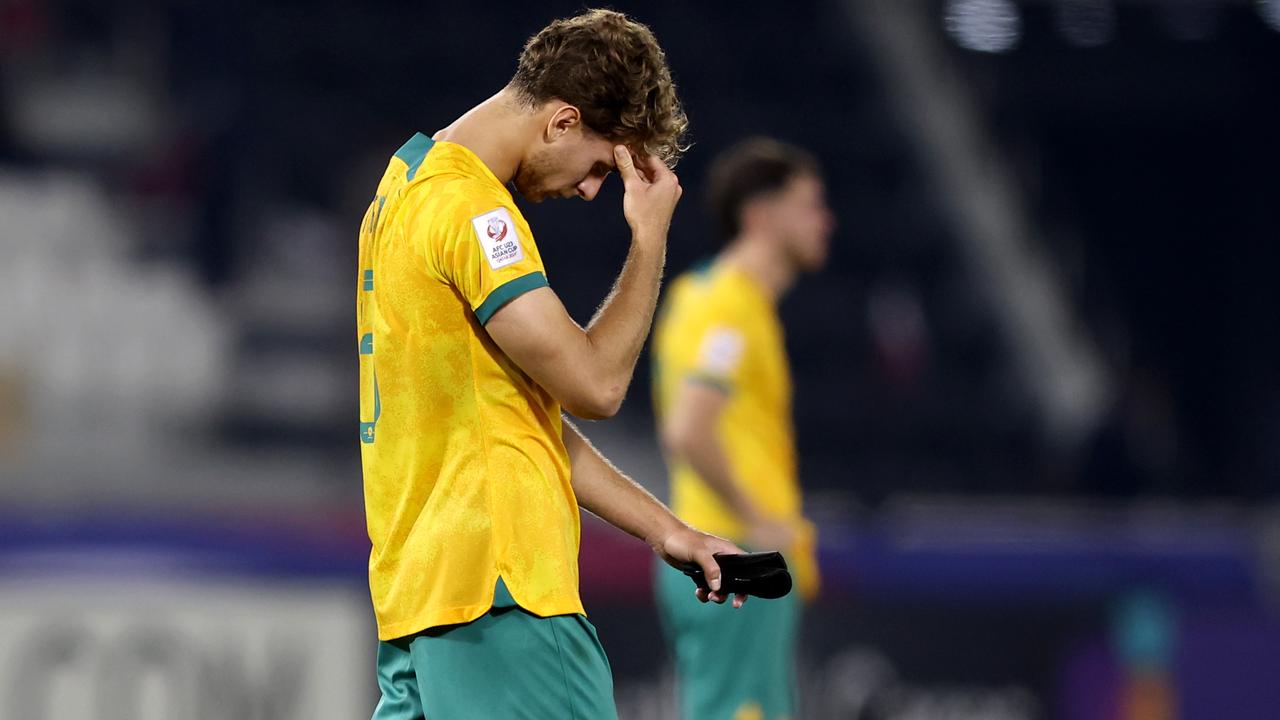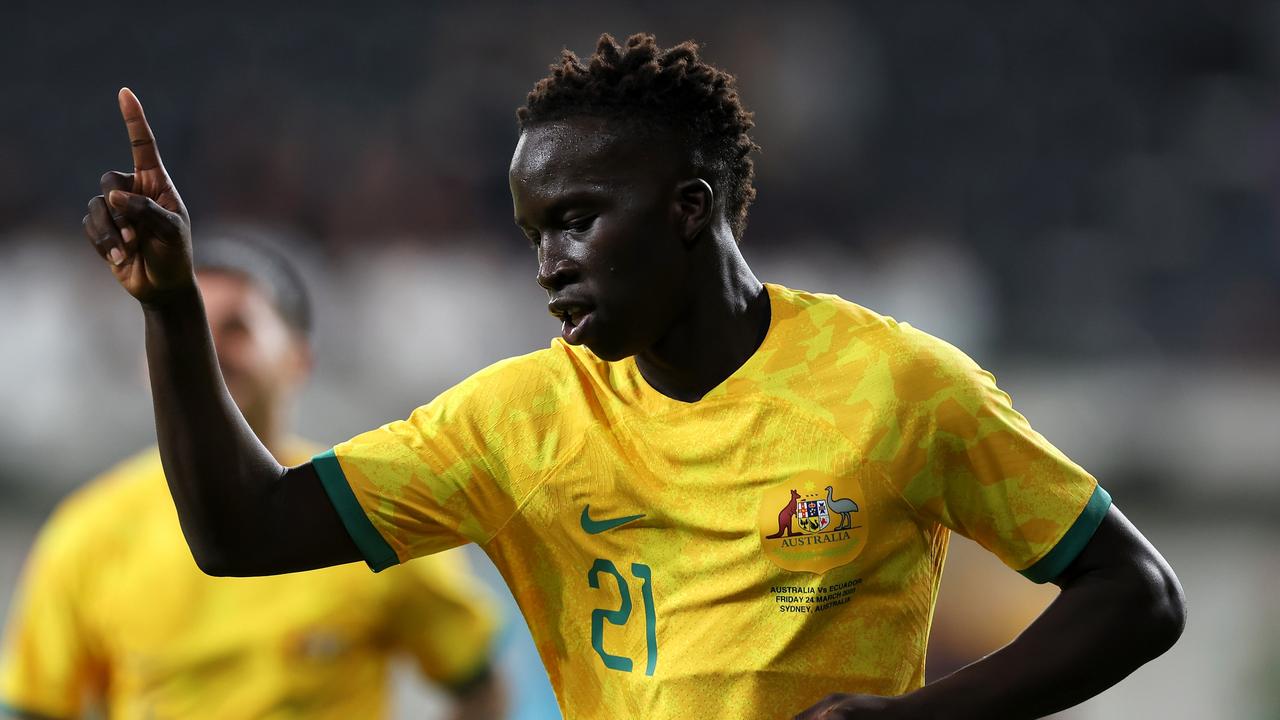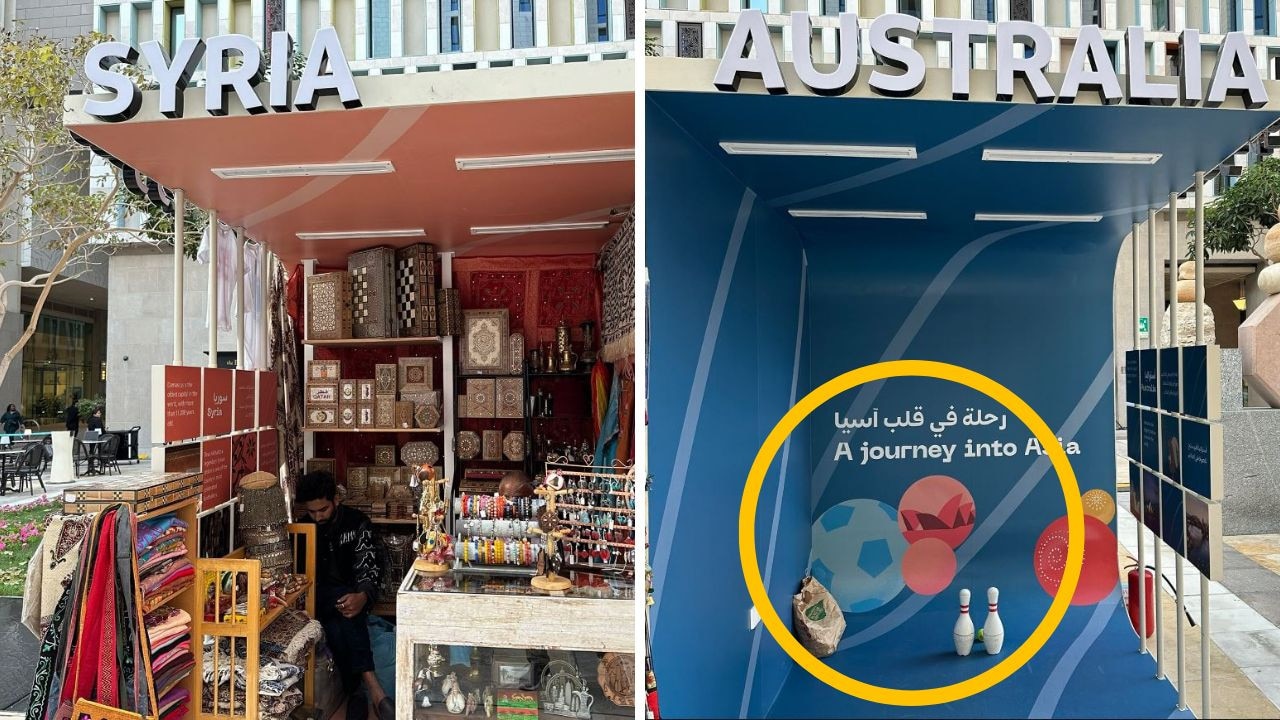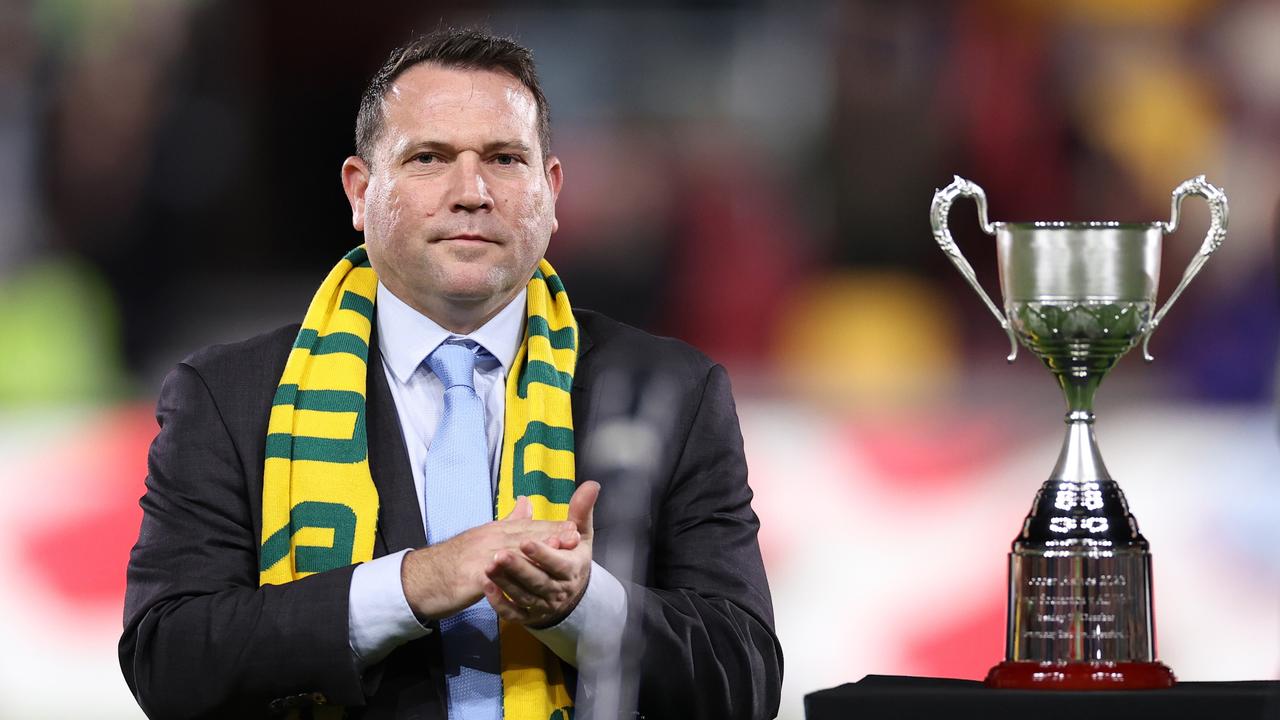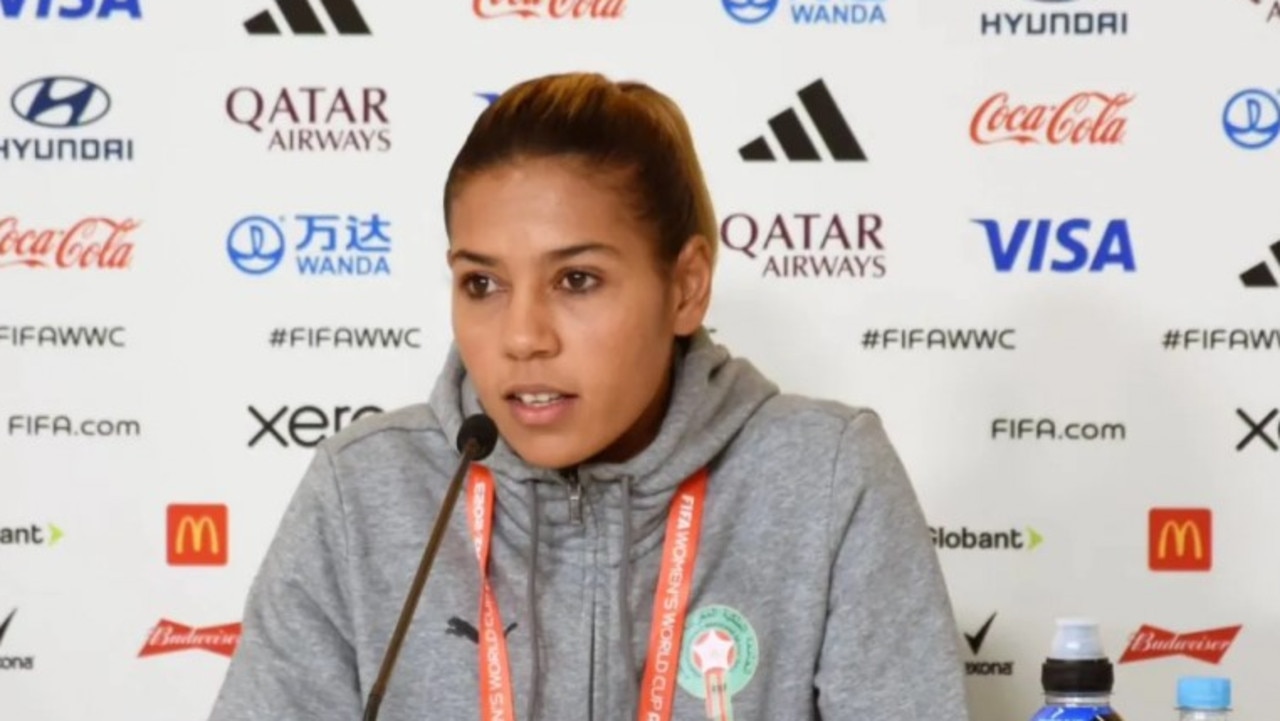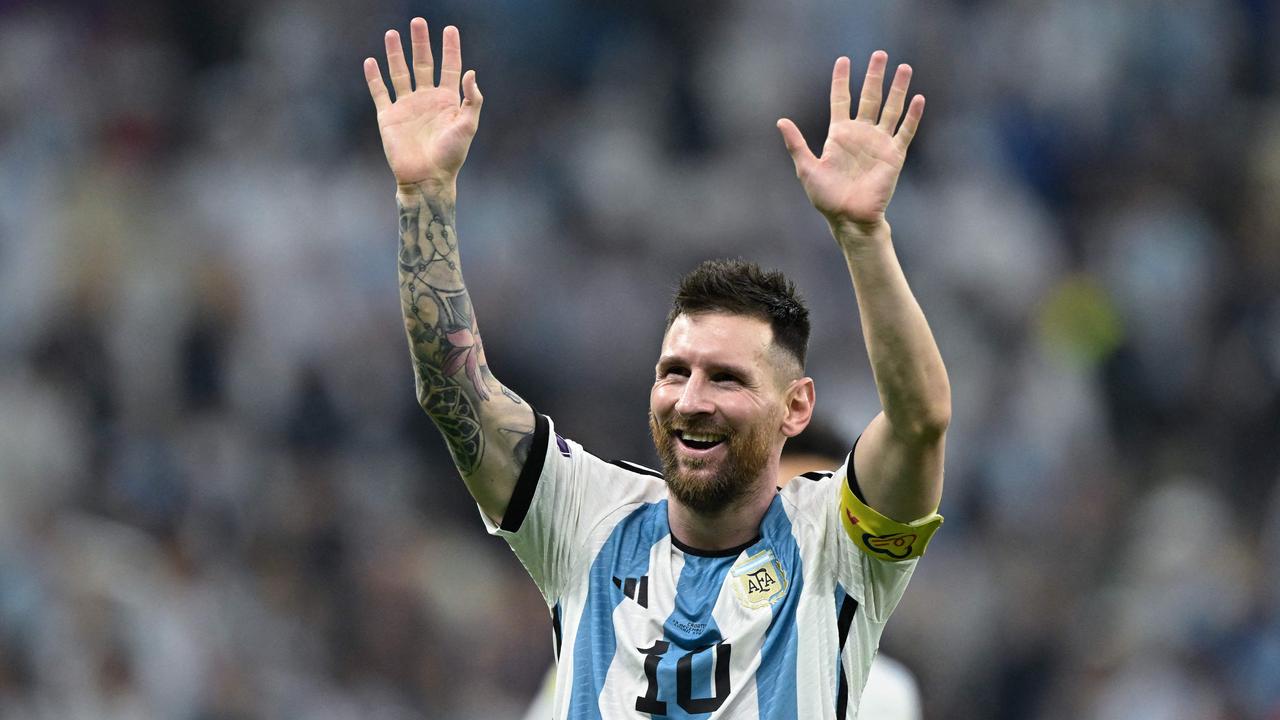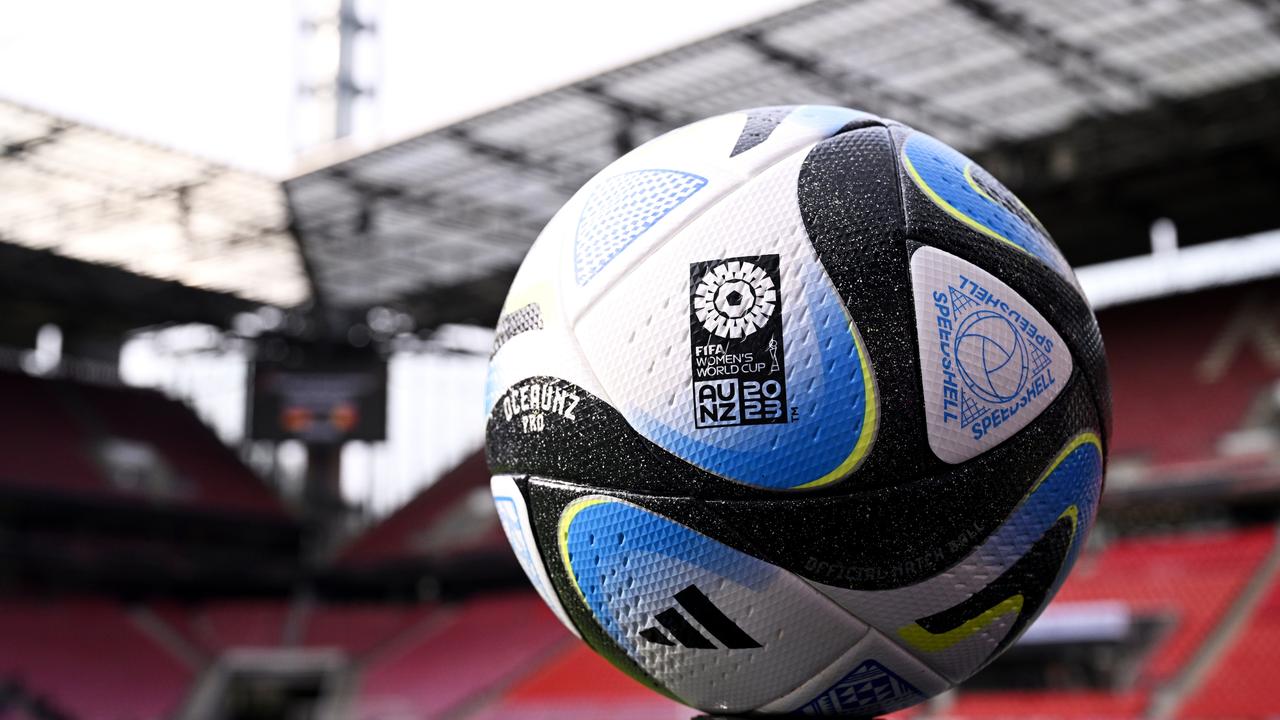The Matildas are a worldwide phenomenon, the Socceroos have stunned some of the best teams in world football — but have you heard of the Street Socceroos?
Watch selected NRL, AFL, SSN games plus every F1 qualifying session and race live in 4K on Kayo. New to Kayo? Get your first month for just $1. Limited time offer.
They’re one of the lesser known teams representing Australia, but potentially the most inspiring, made up of eight individuals experiencing homelessness from across the nation.
The Street Socceroos compete in the Homeless World Cup, a tournament that sees those sleeping rough wear their country’s colours proudly, shining a light on homelessness.
While some are desperate to lift the trophy, for others it’s simply about experiencing an event “like no other” in the hopes it can inspire them to make positive change.
This year’s Australian team was made up of eight individuals — Faz, Ibrahim, Abdalla, Faisal, Ron, Malika, Sara and Michael — who travelled to Seoul in South Korea in September.
They were picked from the 30 programs across Australia, with around 500 people participating in some lighthearted football that invites people of all ages, backgrounds and situations.
Street Socceroos head coach, George Halkias, played a major role in the program’s inception 20 years ago.
“We started as a pilot in 2004. We sent our first team ever to Edinburgh in 2005 and then in 2007 we were lucky to get federal government funding to expand across the country,” Halkias said to foxsports.com.au.
“So it’s been a sort of long journey to you know from something so small to a network of programs around the country and also participating in that event annually which is pretty special.
“It’s been a great sort of team effort by the organisation to grow so exponentially in those two decades.”
The Homeless World Cup began in Graz, Austria way back in 2003, and Halkias explained there’s around 60 to 70 thousand individuals involved in similar football programs across the globe.
The coach, who has a background in football and psychology, explained that from the Australian system, players from vast walks of life are selected.
“So there’s a network of almost 30 programs across Australia… and there’s 400 to 500 people participating each week,” he said.
“So we’re really just working with players to make better lifestyle choices. That’s the aim but they also have a great love of sport.
“Our participants are aged 16 and up and all genders and yeah, picking a team of eight is not easy.
“I also try to make it representative of the different types of people that come to our program. So that’s people who are experiencing homelessness in some form, mental illness disability, long term unemployment.
“Some have sought refuge in our country and have been displaced. So we get nominations from all around the country from their local coaches.”
Michael, one of this year’s team members, had never played a sport with a round ball before becoming involved in the football community.
“Michael is an indigenous man in his 40s who I guess would have experienced homelessness, racism, just a challenging youth,” Halkias said.
“That manifested also in homelessness and substance abuse in recent times. He actually slept rough as well on the pitch which we train every week.
“But with a range of different community supports he’s been able to get secure housing, and turn up weekly to his program. He sells the Big Issue magazine on the streets of Adelaide.
“That’s his way of earning an extra income and he’s been able to face his addiction. He was new to the sport but he wore the green and gold proudly and improved his skills.
Malika, meanwhile, got her chance to represent Australia after arriving in the country only “a few years ago” from Afghanistan.
“Displaced and I guess homeless because of violence in her homeland,” Halkias explained.
“She hadn’t played the game before and got that opportunity in Victoria, she started in our weekly women’s programs in the south east and built her skills and her confidence.
“And her interpersonal skills, and that’s the mix of people that we get in our programs which is pretty special.”
Australia’s team was littered with players of mixed abilities, but for Halkias, football simply becomes a “constant they can rely on”, with their ability an afterthought to individual growth.
“It’s an event like no other, where people come together and compete, go hard when they’re on the pitch, but off the pitch they’ve got to know each other,” Halkias said.
So how did they go in South Korea? The tournament began with all teams on a level playing field.
Then, after the first handful of games, each nation was given match-ups that would provide a fair contest with teams facing off with equal skill levels.
The Street Socceroos came up against footballing heavyweight Brazil, whilst also facing Denmark, Scotland and Ireland.
Then their wins came against Cambodia, Sweden and Zimbabwe, being awarded a FIFPRO Fair Play Award on the first day of the competition for their efforts.
And it was a hugely positive experience for our representatives, with Halkias explaining: “They get so much support from the crowd over there, other people, their families, their local communities. I think it’s important they realise that people don’t judge them.
“Some have made a few mistakes, or copped some kicks in the shins so to speak, but they can overcome them. There’s a lot of people out there to support them as well.
“The experience and understanding, it gives them a huge boost… and hope, sometimes when it’s not going your way, things can look forlorn.
“So players really have that spring in their step when they come back and then they can start to look forward, start to try new things and build that self esteem.”
As for the overall goal of the tournament, it’s to “improve their health and wellbeing, secure housing and make good healthy lifestyle choices”.
But for Halkias, one of the most important things for those sleeping rough is to “feel part of the community” they’re living in and to “start contributing”.
“Because they’ve shown that when they get an opportunity like this one, they can prove themselves,” Halkias added.
Post tournament, those involved sit down and set personal goals to spark an “upward trajectory”.
Opportunities for work come in the form of speaking gigs, educating schools and companies about homelessness.
Others, like Michael, sell The Big Issue magazine to earn an income, but overall players “move forward in a whole host of ways” according to Halkias.
“They get this shot of self esteem and confidence, and we can facilitate some direction to that but it’s ultimately up to them to use that and be empowered by that,” Halkias said.
“We also know that overcoming addiction and changing your life takes quite a bit of work.
“Sometimes it’s backwards and forwards, but we just try and look at the individual, look at what their strengths are and work towards new goals for them.
“Because they’ve shown that when you get the right support, there’s a whole heap of things that they can do… they’ve got the potential to achieve great things as well.
“When you wear the green and gold, and you overcome the challenges they have, I think it gives them a huge boost and a level of resilience they can use for the rest of their lives.”
Meanwhile, Australia are putting in a bid to host the event in 2026, alongside the Asian Cup and the Olympics.
West Ham upset Newcastle’s winning run | 01:05
Halkias was involved in the 2008 edition, which was played in Melbourne and said “I can tell you first hand, Australians can get right behind it”.
The Big Issue are under no illusions it’s going to be a tough task to get the bid over the line. But should it be played in Australia, it’s sure to spark a conversation.
“It’s an event that can motivate and inspire us, cheer us up. Sometimes, life can be a bit serious and bloomy but I think this is uplifting,” Halkias said.
“But it can also get us talking about a whole range of things from being more physically active, having more respect for women and gender equality, the importance of support for mental illness and disability.
“So it can also have an element of, you know, addressing some social issues. But I think more importantly, it’s a great event that brings people from all over the world. I think the whole community get behind it.”
